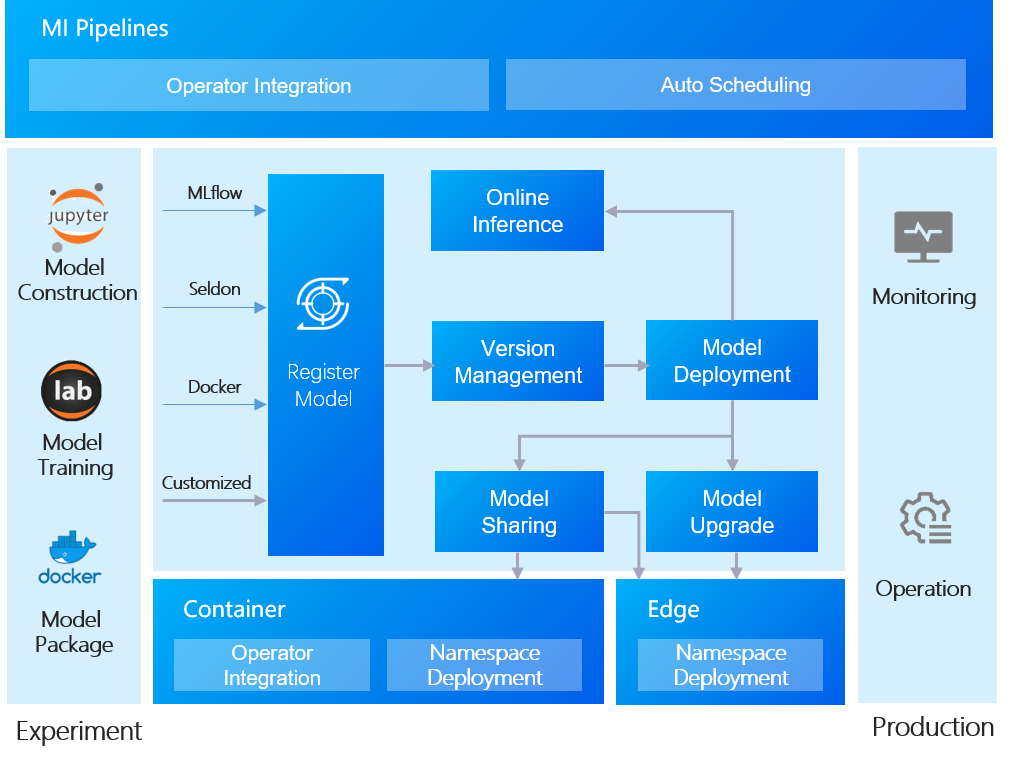MI Hub Overview¶
The MI Hub provides a distribution center of smart assets for smart model users and data scientists, and a comprehensive set of model registration process and hosting services for model developers.
After a model is developed in MI Lab or in a third-party system, the model developer needs to deploy it to the production environment to perform prediction tasks. Based on the needs of model update, users can deploy multiple models to the production environment simultaneously through canary deployment and blue-green deployment. The MI Hub provides model developers with scientific and effective version management tools, which can be shared with end users and other collaborators in a secure and controllable environment, and the model developers can also reuse the smart assets from other collaborative developers.
Product Architecture¶
The process of staging and deploying machine learning models through the MI Hub is shown in the following figure:

Main Functions¶
ML Model Registration
- Basic information registration: The MI Hub provides a guided model registration process. Data scientists or model developers can classify and register models by technology attribution, category, input data type and application domain.
- Model data input and output settings: supports standardized model data input and output.
ML Model Deployment
- Supports mainstream algorithm model computing frameworks, including Tensorflow, Pytorch, Sklearn, Spark, and H2o.
- Supports coprocessors that match the computing framework.
- Supports the deployment of algorithm models in different programming languages (Java and Python).
- Provides a visual deployment canvas, and supports blue-green deployment and canary deployment modes to deploy models to designated resource pools.
- Supports cloud deployment and edge deployment
ML Model Version Management
- Supports a variety of model building methods, including MLflow import, container image file import, Seldon core import, and custom third-party import.
- Supports staging multiple versions of the same model to facilitate online model iteration.
- Supports testing model versions to help ensure that every online version is available.
Secure Collaboration of ML Models
- The MI Hub provides a secure and controllable environment which supports collaborative development for models registered in the public mode.
ML Model Lifecycle Management
- Supports such operations as upgrading, decommissioning, recycling and deleting the model versions.
Sample Models
- Provides multiple common sample models to help users understand how the algorithms are applied.
Resource Preparation¶
ML Model - Container
Before registering and deploying models in the MI Hub, you should ensure that your OU has requested the Subpartitions resource mode of the ML Model - Container resource through the EnOS Management Console > Resource Management page. For detailed information about requesting ML Model - Container resources, see ML Model - Container Resource Specification.
Usage Notes¶
ML Model Availability
The model developers need to ensure that the developed models are available, and also need to define standard feature input parameters and target output parameters when registering the models.